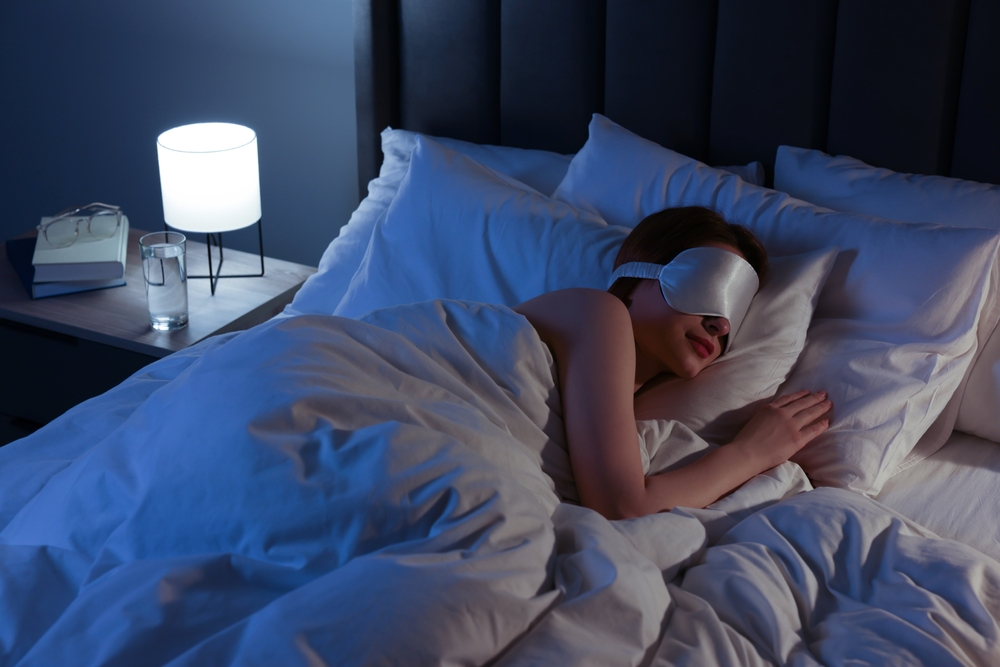Your lifestyle, habits, and even your lighting choices may be sabotaging your rest. These expert-approved tips can help reset your sleep.
Others are reading now
Getting enough sleep is one of the most critical — yet overlooked — pillars of long-term health. Just like nutrition and exercise, restful sleep supports everything from brain function to cardiovascular health. But in our fast-paced, screen-heavy lives, quality sleep can be elusive.
If you’re struggling to fall asleep or waking up groggy, you’re not alone — and you’re not powerless. With a few intentional adjustments, you can create the conditions your body needs to rest and recover properly.
These science-supported strategies, based on Welltica & Healthline’s comprehensive guide, offer actionable ways to improve your sleep tonight and every night.
Let’s get into it.
Also read
1. Increase Your Exposure to Daylight
Daylight is one of the most powerful regulators of your circadian rhythm — your body’s internal clock. Natural light exposure, especially early in the day, helps reinforce your sleep-wake cycle and boosts daytime energy. If natural sunlight isn’t available, consider a light therapy box to mimic its effects.
2. Limit Blue Light at Night
Screens from phones, tablets, and TVs emit blue light, which tricks your brain into thinking it’s still daytime. This suppresses melatonin production, making it harder to fall asleep. Try blue-light-blocking glasses or use built-in screen filters in the evening, and turn off devices at least 1–2 hours before bed.
3. Cut Out Late-Day Caffeine
Caffeine can remain in your bloodstream for up to 10 hours. Even an afternoon coffee can delay sleep and reduce sleep quality. Aim to stop caffeine intake by mid-afternoon — or earlier if you’re particularly sensitive.
4. Nap Strategically
Napping can be refreshing, but long or irregular naps may disrupt your sleep schedule. Keep naps to 20–30 minutes and avoid napping too late in the day. This helps ensure you’re tired enough at night to fall asleep naturally.
5. Stick to a Consistent Sleep Schedule
Going to bed and waking up at the same times every day, even on weekends, helps anchor your circadian rhythm. Irregular sleep patterns can confuse your body, leading to grogginess and poor sleep. Consistency is key.
6. Try a Melatonin Supplement
Melatonin is a natural hormone that signals your body it’s time to sleep. Supplements can help if your schedule is disrupted (like during travel or shift work). Start with a low dose (0.5–1 mg) about 30–60 minutes before bed, and consult a doctor if used regularly.
7. Consider Other Natural Sleep Aids
Beyond melatonin, supplements like magnesium, zinc, L-theanine, and glycine have shown potential to promote relaxation and improve sleep quality. Use these cautiously and one at a time to monitor effects, and always follow dosage guidelines.
8. Avoid Alcohol Before Bed
While alcohol might make you feel sleepy initially, it disrupts sleep cycles, reduces REM sleep, and increases the likelihood of waking during the night. Try limiting alcohol to earlier in the evening or reducing intake overall.
9. Invest in Quality Bedding
An old or uncomfortable mattress or pillow can sabotage your sleep — and your posture. Medium-firm mattresses often support the spine best, while breathable, temperature-regulating bedding helps maintain comfort. Consider upgrading if your current setup is more than 7–10 years old.
10. Optimize Your Sleep Environment
A cool, dark, quiet room is ideal for rest. Aim for 60–67°F (15–19°C), block out noise with earplugs or white noise, and use blackout curtains to reduce light. Improving air quality and reducing allergens can also help promote deeper sleep.
11. Avoid Heavy Meals Before Bed
Late-night eating — especially large or rich meals — can lead to indigestion and disrupt sleep. Try to finish dinner 2–3 hours before bed. If needed, stick to light snacks like yogurt, banana, or almonds that won’t spike blood sugar or disturb digestion.
12. Limit Fluid Intake Late in the Evening
Waking up for bathroom trips can fragment your sleep. To avoid this, taper off water and other fluids at least 1–2 hours before bed. Be sure to use the bathroom right before sleeping to minimize disruptions.
13. Unwind with a Relaxing Evening Routine
Mental stress can keep your body in alert mode. Wind down with calming activities like reading, light stretching, meditation, or warm baths. Establishing a pre-sleep ritual trains your brain to associate certain cues with sleepiness.
14. Rule Out Sleep Disorders
Conditions like sleep apnea, restless legs syndrome, or chronic insomnia may be disrupting your rest without you realizing it. If you snore loudly, feel unrested despite sleeping enough, or frequently wake at night, speak with a sleep specialist.
15. Exercise Regularly — But Not Too Late
Regular physical activity improves sleep depth and duration. However, intense workouts close to bedtime may increase alertness and delay rest. Try to finish vigorous exercise at least 3 hours before you plan to sleep.
To sum up: Better sleep doesn’t come from quick fixes — it’s a daily habit built over time. By understanding how your body’s sleep system works and making adjustments to your environment and lifestyle, you can set the stage for consistent, restorative rest.

